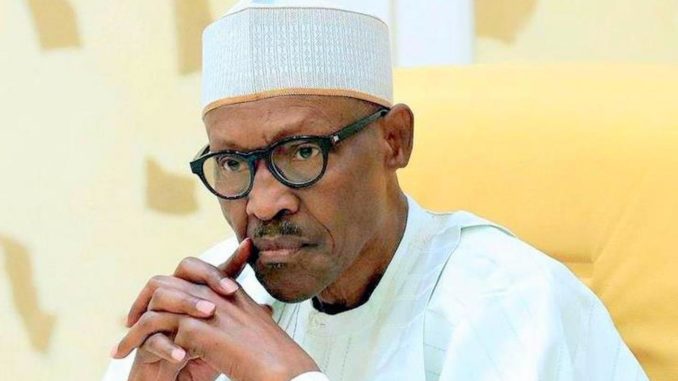
Unsurprisingly, it is not unlikely that those aiming to unseat Mr. Buhari would have more than a keen interest in seeing that the one thing he is supposedly good at is the one thing he fails at. After all, it worked before. So, I will throw the question: do you think this recent violence would ebb if Mr. Buhari decides not to run for a second term?
Four years after those very dark days that we cannot forget soon, our country, Nigeria, is yet again drifting towards the abyss. Then, fellow citizens woke up almost each day to news of one bombing or the other. I was still residing in London when the now well-known “Chibok Girls” were kidnapped. The outrage over there was not immediate. I would probably not be easily forgotten at my former workplace because at some point I simply could not hide my angst at the initial indifference. Oh you bet; someone quickly issued a statement and so on. The rest is history. Considering how the government of the day at the time bungled the handling of the sad event and how years after, some of the Chibok girls remain in captivity, it is unfathomable how the current supposedly more competent government cannot even account for how many girls were kidnapped in another girls-only school in another state in North-Eastern Nigeria. To add insult to injury, the initial news that some of the now so-called “Dapchi Girls” had been rescued turned out to be false. The administration has asked for time. Well, so did the previous one.
Be Quick To Act, Mr. President
Lest we forget, there remains the vexing issue of the marauding Fulani herdsmen who continue to maim and kill with impunity. True, prominent Fulani leaders, like Emir Muhammadu Sanusi II of Kano, have condemned the attacks and called for the prosecution of the culprits. And indeed, the president, Muhammadu Buhari, has similarly tasked the security agencies to deal squarely with the matter; albeit not as early and quickly as he should have. Besides, even the security measures he has directed have not been without some controversy: Benue youth recently took exception to the characterisation of the so-called “Operation Rat Race” as a “training exercise” by the chief of army staff, Tukur Buratai. Is it that the incidents in Benue are not serious enough to warrant a proper military operation? Is it a strategy? To the second question, one might wonder why a similar strategy was not deployed to comparable troubles in the South-Eastern and Niger Delta regions of the country. We have to assume Mr. Buratai did not mean to cause offense.
But inevitably, as is usually the case with such miscommunication, all sorts of conspiracy theories have begun to emerge. Why would the president not visit Benue State? Considering Mr. Buhari has visited Nassarawa, Adamawa, and Katsina States since the most recent major killings in that self-acclaimed food basket of the nation, this is more than a tad troubling. (It is probably irrelevant now whether he visits Benue or not: the Yobe incident is now uppermost on everyone’s mind and would likely take all the attention). Of course, a Buharist might be quick to point out that his presence is not as necessary as the security measures he has already taken. Another potential rationalisation might be that the president should not and cannot visit every place where there happens to be a violent incident. Well, on the second point, one might argue that he could not now do so because there are now too many of them: wanton killings have been occuring elsewhere, in the North-Western State of Zamfara, for instance.
…while it is tempting to suggest that perhaps elements from rival political parties might be fuelling the current violence, it would be lazy thinking to do so. In trying to analyse the political dynamics around a situation, a clearer perspective is easily attained if you simply dimension the issues and events by who benefits and who loses.
Violence As Politics
It is highly unlikely that these violent incidents are random. The recent surge is definitely related to the already heightened political activities ahead of the 2019 elections. When similar violent incidents happened during the administration of former President Goodluck Jonathan, it was easy to allege that the North was perhaps trying to force the hand of the Southerner in power at the time. That simplistic characterisation cannot be made this time around. And while it is tempting to suggest that perhaps elements from rival political parties might be fuelling the current violence, it would be lazy thinking to do so. In trying to analyse the political dynamics around a situation, a clearer perspective is easily attained if you simply dimension the issues and events by who benefits and who loses. The beneficiary of the insecurity in the land during the Jonathan administration was Mr. Buhari, whose military credentials was a source of comfort for those who voted him to fix the problem.
Unsurprisingly, it is not unlikely that those aiming to unseat Mr. Buhari would have more than a keen interest in seeing that the one thing he is supposedly good at is the one thing he fails at. After all, it worked before. So, I will throw the question: do you think this recent violence would ebb if Mr. Buhari decides not to run for a second term? I will leave the answer to you. I guess the other curious reckoning you might have is who in the opposition is perhaps engineering or fuelling these negative incidents; if at all. We, Yorubas, have a saying for such conundrums: the insect eating away at spinach resides in it.
Rafiq Raji, a writer and researcher, is based in Lagos, Nigeria. Twitter: @DrRafiqRaji
END

Be the first to comment